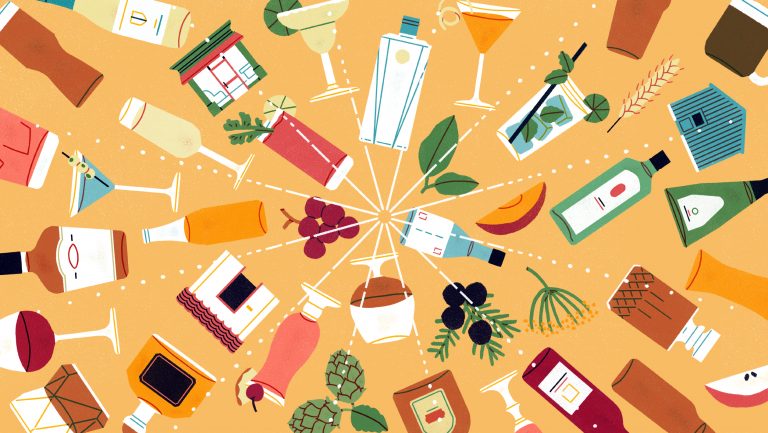When people think about the relationship between a buyer and a seller in the wine world, they mostly think about a sommelier or wine store employee interacting with a customer. Yet there’s another, less obvious relationship at play in the wine world, and that’s the one between a representative of a distribution company and the buyer at a restaurant or wine shop. Fostering this relationship is in the best interests of all parties, but things sometimes can and will go wrong. SevenFifty Daily spoke to wine industry professionals on both sides of this relationship to understand how they keep it strong.
1. Start with Mutual Respect
Carenn Mackinnon of the bistro Texas French Bread in Austin has a deeper appreciation of the relationship between sales rep and buyer now that she’s worked as both. Keeping that relationship strong is “something that has become very important to me since becoming a buyer,” she says. “As a sales rep, I always felt that the dynamic between buyer and rep was not a mutual relationship but rather one where most buyers act as though the sales rep works for them.”
While the job of the sales reps is to promote and sell their portfolio, Mackinnon has found that a collaborative relationship between buyer and sales rep benefits both parties significantly more. “This is a business based in relationships, whether I’m selling wine to a guest or a sales rep is selling wine to me,” she says. “There should be two-way conversation surrounding the wines we are buying and selling, and mutual respect about the work each of us is doing. This is something I strive for as a buyer, and as a result, I have great relationships, both professionally and personally, with the sales reps I work with.”

Don’t miss the latest drinks industry news and insights. Sign up for our award-winning Daily Dispatch newsletter—delivered to your inbox every week.
2. Anticipate and Plan for Potential Problems
For sales reps, managing the relationship with a buyer is often about problem solving. “It’s inevitable that you sell out of key by-the-glass placements, the warehouse screws up, the delivery truck screws up, inventory reports are incorrect, and most commonly, the wrong wines were ordered for the wrong dates,” says Eric Danch, the San Francisco sales manager for Blue Danube Wine, an importer and wholesaler of wines from Hungary, Slovenia, Croatia, and other Central and Eastern European countries. “On a few magical occasions, I’ve had all of these happen to a single order.”
When such problems, and others, arise, Danch recommends a blend of forthrightness and flexibility. “The best strategy is honesty,” he says. “Take responsibility, apologize, and then follow up with customer service.” To make amends for any confusion, Danch suggests offering will-call pickup, where a buyer can pick up directly from the warehouse, or hand delivery of the ordered wines by the rep to the venue, as well as donating samples for staff trainings. “Then,” he says, “make note of what to do next time to avoid the chaos.”
The other strategy is to get ahead of the problems. “Send inventory updates to buyers, make sure to taste possible future replacements, and ask if they’d like to put some wines on hold before any problem arises,” Danch recommends. As a backup measure, double-check before cutoff that you’ve ordered the wines correctly and that the warehouse has confirmed the order.
3. Communicate Early and Often
Kim Cavoores, the wine director at the Italian restaurant Marta in New York City, stresses the importance of communication. “In New York we’re all busy all the time, and I try and be respectful of that,” she says. “I may not get to every single email, but I will be on time for our appointment. If I’m running behind, I will reach out.”
Sound communication is key for strong working relationships, Cavoores notes. “A brand manager is no less of a person than the beverage director of a multimillion-dollar program, and vice versa,” she says. “If I don’t like the way a rep does business, I will request a new rep. This doesn’t happen often, but it has happened. Respect and communication are the key components here.”
4. Above All Else, Listen
When things go wrong, William Whelan, a sales representative for Skurnik Wines in New York, has a simple strategy: Listen. “The most important thing is to always listen and empathize with [buyers’] issues while also making sure to stand up for yourself and your colleagues,” Whelan says. “Most things that feel relationship ending can be sorted out with one or two blunt conversations about what went wrong and how each side can feel whole again.”
On occasion, mending a relationship requires showing a buyer a little extra love—whether that means copying the buyer on an email that shows you’re fighting for him or her, stopping by the restaurant for dinner, or supporting a shop by purchasing wine there. “In more serious cases,” Whelan says, “you have to get over whatever ego trip might be involved and go to your sales manager and suggest that a new rep have a crack at the account.”
Just as skilled sommeliers and wine retailers must be able to balance their own needs with those of their customers, so too must a sales rep. Often that means bringing interesting bottles of wine to taste and entering orders correctly, but sometimes it requires fixing a relationship before it results in disaster—or at least the loss of a client.
Zach Geballe is the sommelier at Seattle’s iconic Dahlia Lounge, the flagship of Tom Douglas Restaurants. He is also the wine educator for the Tom Douglas group, a freelance wine and spirits writer, and the host of the wine-focused podcast Disgorged.


